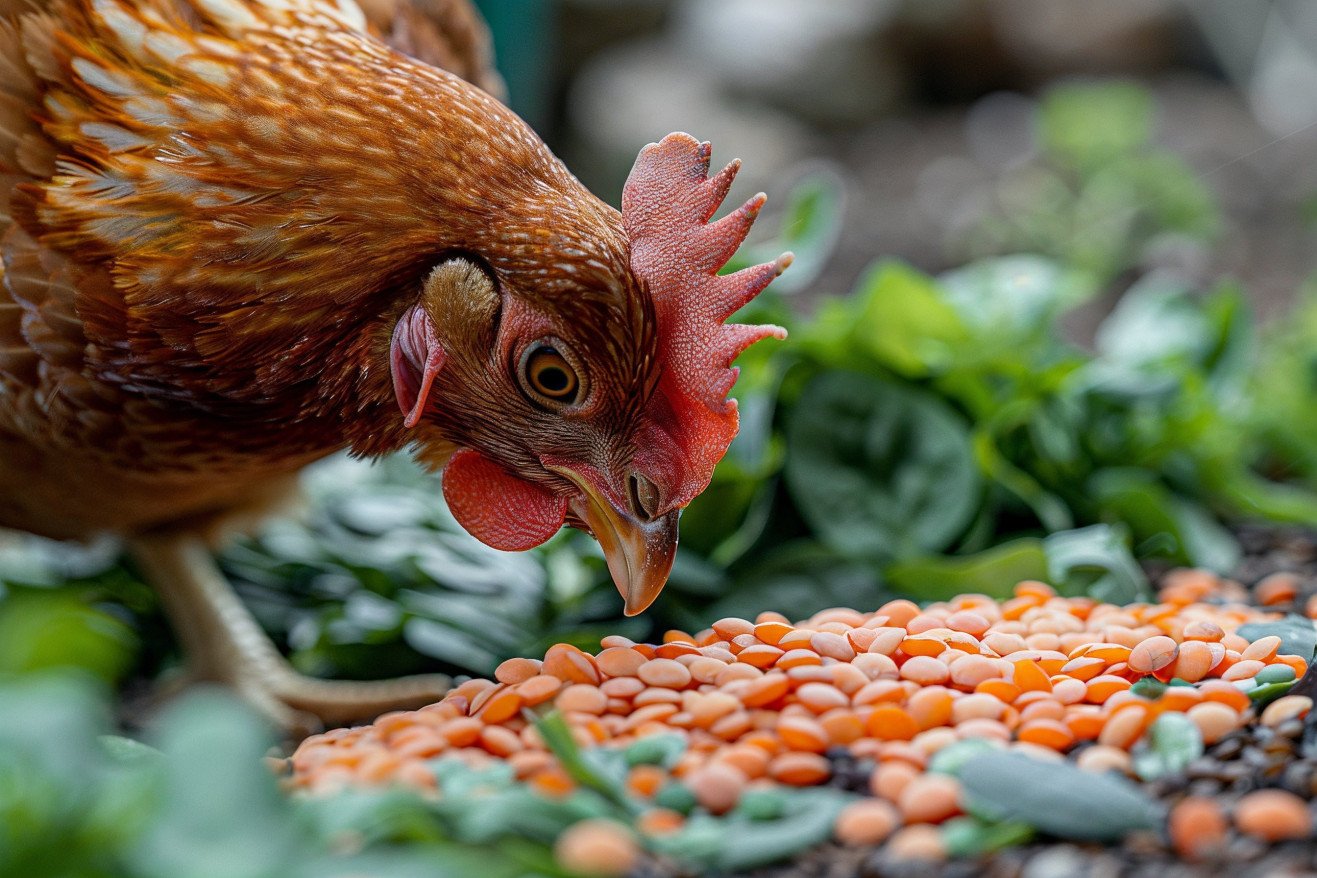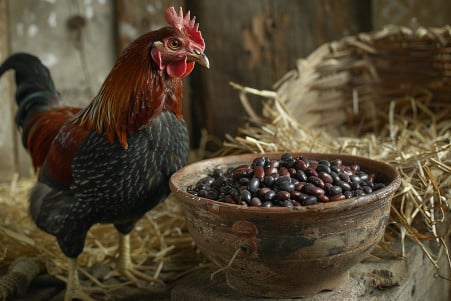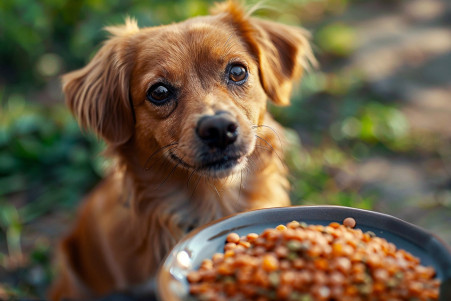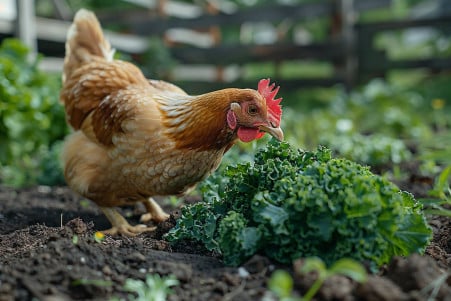Can Chickens Eat Lentils? A Nutritional Guide
9 May 2024 • Updated 9 May 2024

If you’ve been staring at that bag of lentils in your pantry and wondering if your chickens could eat them, you’re not alone. Chickens can eat lentils in moderation as part of a well-rounded diet. They offer protein, fiber, and nutrients like iron that can help keep your chickens healthy. That said, they should only be a small part of your chickens’ diet, which should be primarily made up of grains and plant-based foods.
That said, there are some important things to consider when adding lentils or any other human food to your chickens’ diet. In this article, we’ll look at information from agricultural experts and veterinarians to find out what nutritional benefits lentils can offer chickens. We’ll also cover potential downsides, safe amounts to feed your chickens, how to prepare lentils for your chickens, and other general guidelines for feeding lentils to your chickens in a way that’s safe and healthy.
Can chickens eat lentils?
Nutritional Profile: How Lentils Stack Up Against Other Proteins
Lentils are a great source of plant-based protein, with about 9g per 100g serving. This is more protein than most other legumes and grains, and even some animal proteins like chicken. In fact, according to a study cited by Medium, lentils are 20% protein by weight, while chicken is 25% protein by weight.
Lentils are also lower in fat and calories than animal proteins, which makes them a healthier choice. SoupersAge says that lentils have 57.6 times less saturated fat than chicken and are much lower in cholesterol. On top of their high protein content, lentils also have fiber, folate, iron, and magnesium, which are all things that chicken doesn't have.
While the protein in lentils may not be as bioavailable as animal protein, Muscle & Fitness points out that they are a very cost-effective source of plant-based protein. Because of their nutrient density and cost, lentils are a great way to supplement chicken feed to increase protein intake.
Feeding Tips: Dietary Restrictions and Preparation
Raw lentils should not be fed to chickens because they contain protease inhibitors and lectins, which are toxic. As stated in the LENTILS IN POULTRY DIETS article, lentils are high in protein and low in digestive inhibitors, so it's important to prepare them properly.
Lentils need to be cooked by boiling for at least 30 minutes or sprouted to remove anti-nutrients. The Step by Step Guide To Sprouting Lentils for Chickens explains that sprouted lentils are more nutritious, but they need to be carefully watched for mold.
Insteading suggests that lentils should only be fed to chickens as a treat or protein source and make up 10-15% of their diet. Lentils should be fed to chickens in moderation a few times a week, with the amount being adjusted based on the size and age of the flock. This will help ensure that the flock doesn't experience any health issues when they're introduced to new foods.
Potential Dangers and Symptoms of Lentil Toxicity
Raw or improperly cooked lentils may contain anti-nutritional factors such as protease inhibitors and lectins, which are detailed in the LEGUMES IN POULTRY FEED article. These compounds can impact digestion and nutrient absorption in chickens when they are consumed in high amounts.
Symptoms of potential lentil toxicity in chickens include digestive upset, depression, decreased egg production, and poor feather quality. Insteading explains that poisoning can occur after eating as few as three or four raw beans and can progress quickly, potentially killing chickens in as little as an hour. Keeping a close eye on droppings when you first introduce lentils can help you catch any digestive issues.
As with many potential dangers, most of the risks associated with lentils come from eating them raw or undercooked. According to the Merck Veterinary Manual, cooking or sprouting lentils is essential to inactivate any anti-nutritional factors and make them safe for chickens to eat.
Lentils for Laying Hens: Increasing Egg Production and Quality
Research has shown that the addition of lentils to a laying hen's diet can increase egg production and yolk pigmentation. According to research published in the PMC, the inclusion of 10% and 20% lentil byproduct in the diet significantly increased egg production in laying quail. The antioxidants in lentils also help decrease oxidation and increase the shelf life of eggs, as the same PMC study points out.
Lentils are a good source of essential nutrients such as protein, iron, and B vitamins that are important for maintaining egg production. The PMC study also showed that lentil byproduct increased the deposition of yellow yolk pigments. Lentil sprouts are a great source of vitamins and minerals that can help maintain hen health and feathering. The levels of lentils in the diet can be adjusted to meet specific goals, such as increasing egg size, egg production, or yolk color.
How to Prepare and Feed Lentils: Recipes and Feeding Techniques
According to Different Ways to Prepare Lentils for Chickens, cooked lentils can be ground up and added to regular chicken feed at a rate of 10-15%. Meanwhile, the Step by Step Guide To Sprouting Lentils for Chickens explains that sprouted lentils can be used as a healthy snack that is fed to chickens every day in moderation.
Lentil-based veggie burgers or loaves can be a good way to add lentils to a chicken's diet. In addition, lentils can be mixed with grains like rice before being cooked and fed to chickens to keep things interesting, according to BackYard Chickens.
It's important to gradually introduce new lentil-based foods and carefully observe the chickens for any signs of problems when you do, according to Insteading. This will help ensure that the chickens adjust to the new foods and any dietary changes well and don't experience any health issues.
Conclusion: Adding Lentils to Your Chickens' Diet
Lentils can be a healthy part of a chicken's diet if they are prepared correctly and fed in the right amounts. They are a good source of plant-based protein, fiber, and other nutrients that can help improve overall health and egg quality. Cooking or sprouting lentils will help to eliminate any potential toxins and make the nutrients in them more accessible.
Lentils are a good source of protein, with about 9g per 100g serving, which is more than many other legumes, grains, and some animal proteins like chicken. They are also lower in fat and calories than animal proteins, making them a healthier option. In addition to protein, lentils also provide fiber, folate, iron, and magnesium, which are not found in chicken.
Chickens should never be fed raw, uncooked lentils because they contain anti-nutrients that can be toxic. Lentils need to be cooked by boiling for at least 30 minutes or sprouted to remove any anti-nutrients. Lentils should only be included in a chicken's diet as a supplement or protein source and should make up 10-15% of their total diet.
Research has shown that adding lentils to a laying hen's diet can increase egg production and yolk color. The antioxidants in lentils can also help reduce oxidation and increase the shelf life of eggs. Sprouted lentils can also provide vitamins and minerals that can help support hen health and feather quality.
When you first start adding lentils to your chickens' diet, make sure to keep an eye on the amounts you are feeding them and their overall health. If you prepare them correctly and make sure they are part of a balanced diet, lentils can be an affordable way to improve your chickens' nutrition.


